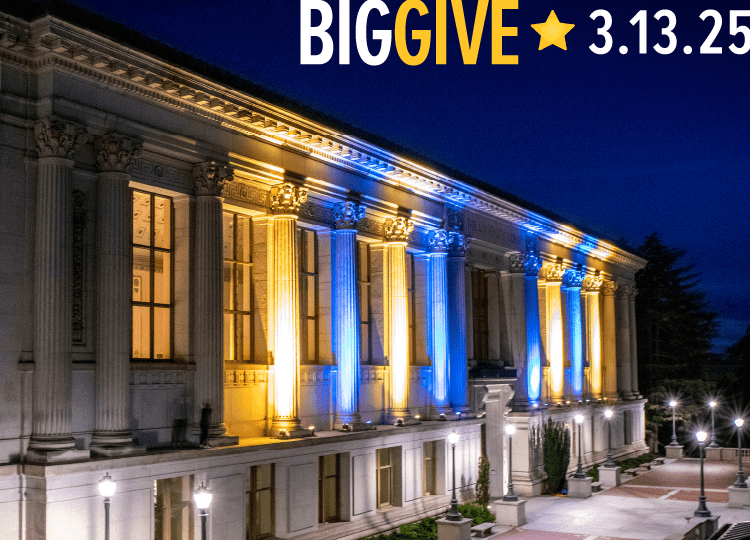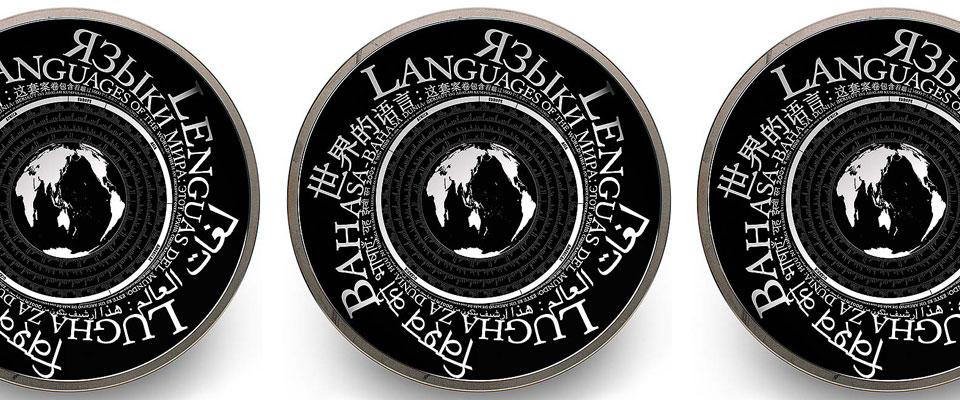David Peterson has never been interested in fantasy films or literature. The 33-year-old dismisses the genre as “fantastical people who do fantastical things.” So it may be surprising to learn that for the past five years, the 2003 Berkeley graduate has been creating languages for the fantastical worlds of TV shows like HBO’s Game of Thrones and movies such as Thor: The Dark World.
Peterson is a member of, and vocal advocate for, an international community of language-creation hobbyists who call themselves conlangers (the word derives from “constructed language”). What started as an obscure pastime has turned into his full-time job.
Some conlangers approach language creation as a thought experiment. They play at building languages without verbs, say, or made exclusively of verbs. Others aim to create a universal language with the hope that their language will bring about world peace. For Peterson, who has created more than 30 languages since 2000, conlanging has been an artistic outlet.
“It’s like computer coding, marrying that with writing, but writing with an anthropological eye to it,” he said recently, speaking from his home in Santa Ana. “There are technical aspects to creating a language, but there’s a lot that’s just pure art.”

Growing up with his mother in Orange County, Peterson was bilingual in Spanish and English (his family is from Mexico) but otherwise had no real interest in languages. That changed one day during his junior year of high school, when he woke up from a dream feeling upset and ashamed that there were millions of people in the world who speak French but he couldn’t. He vowed then to learn every language in the world, and he’s still committed to that quixotic goal: He now speaks fluent Spanish, passable French and American Sign Language, and will “not end up in a ditch with Russian, German, and Arabic.” He is currently learning Hindi.
Peterson discovered constructed languages during his first year at UC Berkeley, when he took a DeCal class on Esperanto. The language was created in the 19th century by a Russian physician, L. L. Zamenhof, who hoped it would transcend nationalities and usher in lasting, worldwide peace. Sitting in a linguistics class one day, Peterson realized that nothing was stopping him from creating a language of his own, so he started sketching out the structure of his first language in the margins of his notes. The language, conceived as a way for him and his girlfriend to secretly communicate, was a flop (his girlfriend had no interest in learning it), but Peterson gained a hobby.
Soon after, Peterson discovered an email listserv for conlangers. He was surprised, first, to learn that such a community existed and, second, to discover how embattled it was: Peterson’s friends and professors had always been supportive of his pastime, but others on the list recounted stories of being mocked for their hobby. The listserv was a refuge for them.
“When I found language creation, I just assumed that it was incredible, and that everybody should be excited about it. I was shocked when I heard all these people’s stories about getting flack for creating languages,” Peterson said. “It was then that I kind of became a crusader for [conlanging].”
Peterson remains an active member of the conlang community. In 2006, he helped put together the inaugural Language Creation Conference at UC Berkeley—the first-ever conference for language creators—and assisted with creating the Language Creation Society (LCS) in 2007, a nonprofit that hosts a biannual conlanging conference.
In 2009, HBO approached the LCS. The cable network was adapting George R.R. Martin’s popular fantasy work A Game of Thrones for TV. The characters in the Song of Ice and Fire series speak several different languages, but unlike Tolkien and other fantasy authors, Martin has never been especially interested in language creation. The show’s producers wanted to transform the book’s handful of words in Dothraki, a language spoken by the warrior race at the heart of the show’s first season, into a fully developed language. “Real languages have a structure and a phonetic consistency that you can feel even when you don’t understand a word of them,” Game of Thrones showrunner Dan Weiss explained. “And for the actors, we knew we needed a real language onto which they could map the emotions of the (translated) dialogue. The lines need to mean something so they know where to lay stress and how to play them.”
To find the right person for the job, HBO and the LCS created a competition. Interested conlangers were challenged to devise a phonetic structure and lexicon, then translate dialogue from the pilot into their version of Dothraki.
At the time, Peterson had an advantage: He was unemployed. After earning his M.A. in linguistics from UC San Diego, he taught English at Fullerton College for four semesters before quitting. He was left feeling burnt out and adrift. When he heard about the competition, he devoted himself to it completely. For two months he worked on his entry for 14–16 hours a day, occasionally pulling all-nighters. His entry ran to 300 pages. “I believe that I gave them so much material that they would have felt bad not to select mine,” he says now.
Weiss, the showrunner, insists pity had nothing to do with it. “It was clear from his presentation that he had really thought through Dothraki and taken a truly anthropological approach to the language—taking into account the history, geography, and culture of the people who spoke this language, and making sure the language adequately reflected their reality. And probably influenced their reality, in some ways—or co-evolved with it, at least. David was extremely smart and extremely methodical, and we knew his Dothraki was the one very early on.”
In addition to his work on Thrones (now in its fourth season), Peterson creates languages for three other TV shows: Defiance, Star-Crossed, and Dominion. When he gets a new job, he says the first thing he does is talk to the producers or writers to learn about the people speaking the language: Why are these people speaking this language? What should it sound like? How will they be presented on screen? He then goes home to his workspace—a desk in the one-room condo he shares with his wife—and with his cat sitting next to him, he sketches out the basic phonetics of the language, creates test words, and puts together simple sentences to see how it all fits together. He repeats the process, tweaking the sound and grammar until it matches his idea of what the writers are trying to communicate. (He also sneaks in a reference to his wife, Erin, with every language he creates—in the Game of Thrones language Dothraki, erin means “good, kind.”)
With his success, Peterson has become the public face of the language-creation community. He still posts on the email listserv, attends the Language Creation Conferences, and patiently answers a constant stream of questions from beginning conlangers on his website.
“Given his personality, which is kind of outgoing, he’s a good person to have as our de facto spokesman,” said longtime friend and conlanger Doug Ball, a linguistics professor at Truman University. “He isn’t afraid to say, ‘I’m here too, and look at what I’m doing.’ To have a person who’s so well suited for the role of spokesperson doing that job, that’s been a help to [raise] awareness of this strange, weird hobby we do.”
“You’ll see somebody who’ll say, ‘Why would you create languages when languages are dying?’ Those things aren’t connected even a little bit….Why are you writing fictional stories when real people, with real stories, are dying every day?”
Not all linguists are as enthusiastic about conlanging as Ball. Berkeley linguist George Lakoff, for instance, takes issue with the very premise: that conlangers construct languages. “I don’t want to say anything bad about the people doing this work in any way, it’s not easy to do—but it’s not a language,” said Lakoff. “It’s not a language for many, many reasons. It doesn’t go to the conceptual structures. You don’t get the frames, the image schemas, the force dynamics, pragmatics, the metaphors—it isn’t there.”
Lakoff also feels that the community’s passion for languages could find more productive outlets. “There’s nothing wrong with amusement,” he said. “But there’s a lot of real things to be done in the world, to be done in the study of language. If you’re going to spend a lot of time on something, my own feeling is you should spend the time on something real.”
It’s a common sentiment; in the comments following a 2011 New York Times article on Dothraki, one reader wondered: “With hundreds of languages already existing but many going extinct, why waste time on devising all this new gibberish?” The criticism frustrates Peterson. “Every so often you’ll see somebody who’ll say, ‘Why would you create languages when languages are dying?’ Those things aren’t connected even a little bit. You may as well be criticizing novelists: Why are you writing fictional stories when real people, with real stories are dying every day?”
Peterson is a rapid-fire, enthusiastic speaker, whether talking about things he likes such as his cat, the Hawaiian language, and basketball or about things that annoy him—traveling, Chomsky’s universal grammar theory, or the fact that no one got him the book on learning Japanese that he asked for last Christmas (“I put that at the top of my wish list!”). He talks so much that when presenting at the language symposium he helped organize as a Berkeley undergraduate, the timekeeper (his future wife) had to create new signs because he talked so far over the time limit: “Stop.” “Please, for the love of all that’s holy, stop!” “Why are you still talking?”
“David was—and still is—quite loquacious,” said Ball dryly.
Yet when you ask Peterson why he has devoted so much time to organizing and popularizing the language-creation community—organizing the language symposium at Berkeley, helping found the Language Creation Society, and creating the Smiley Award, an honor he personally bestows upon his favorite created language of the year—he falls silent.
Finally, he says, “Maybe this is something that goes back to me being weirdly confident. If something’s cool, I want to tell people about it. I think if I find something interesting, everybody else should find it interesting.”
His goal, he said, has always been to show that the language-creation community exists, and is doing significant work, worthy of respect.
“If I can do anything, I want to share the stories of other people,” he said. “I’m not the reason that I’m here. There’s a huge swarm of people behind me, they’re the reason why I’m here, and they’re still there. This isn’t just a drop in the ocean, there’s a movement behind me.”
Shelby Pope is a freelance writer living in Oakland and a former California intern.
From the Summer 2014 Apocalypse issue of California.






















